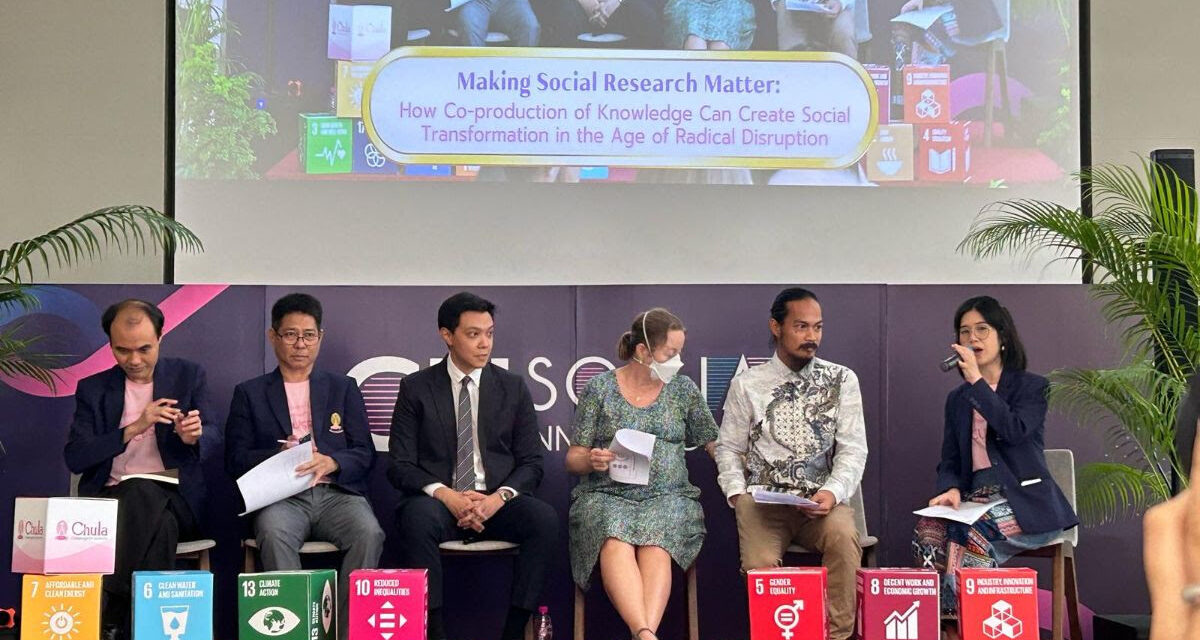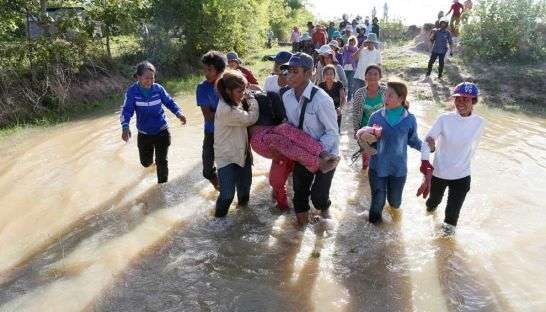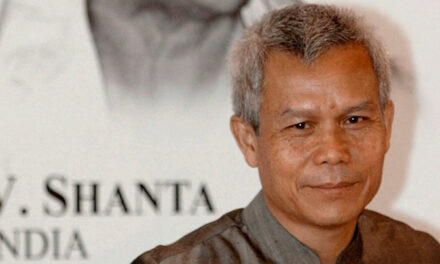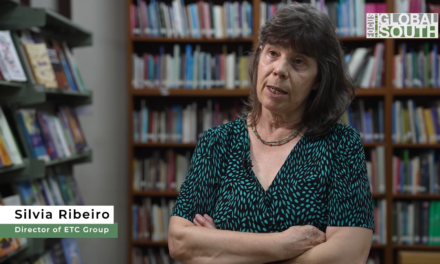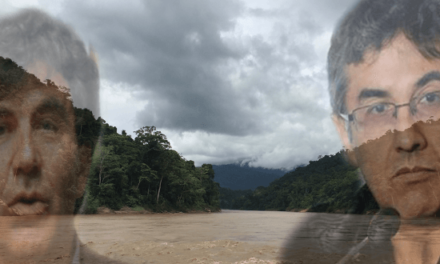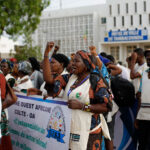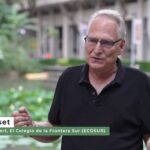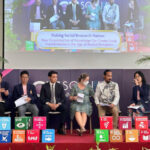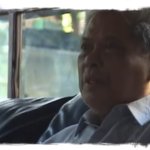(The text below is based on the panel presentation made by Focus on the Global South during the 50th Anniversary of the Chulalongkorn University Social Research Institute (CUSRI), International Seminar on “Making Social Research Matter: How Co-production of Knowledge Can Create Social Transformation in the Age of Radical Disruption” held on April 25, 2024 at the Social Innovation Hub, Visid Prachuabmoh Building, Chulalongkorn University, Bangkok, Thailand.)
First, congratulations to the Chulalongkorn University Social Research Institute (CUSRI) on your 50th anniversary and successful years of conducting social research that matters. We thank you for inviting us to share our insights in this International Seminar on the Co-Production of Knowledge. Focus on the Global South (Focus) is proud to be one of your long-time partners and we are committed to working collectively with CUSRI and fellow esteemed organizations here in exploring the dynamic landscape of social research and its practical implications in catalyzing positive change amidst contemporary challenges.
Focus is a collective of committed activists working with social movements, peoples’ organizations, progressive scholars, small-scale food providers, workers, women, and the youth in our common quest for ecological, social, and economic justice. As an activist think tank, we also work with policy makers and interlocutors in our four country programmes in India, Cambodia, Thailand, and the Philippines. We delve into the regional and international dimensions of our analysis, advocacy, and campaigning. We flag significant trends and emerging issues, while linking actions grounded in local struggles to different movements and policy spaces.
Over the years, we have challenged corporate-led globalization, neoliberalism, and authoritarianism, and advanced social, economic, political systems based on equity, justice, peace, solidarity, and respect for nature. We believe that genuine transformation happens through the continued empowerment of critically aware social movements and communities and the expansion of democratic spaces.
We do this by co-creating knowledge, sharing insights, and building critical analyses and counternarratives, as well as supporting their expressions in collective actions through campaigns and policy advocacy. Focus conducts social research that matters by:
- Understanding, enabling, and strengthening research capacities at the grassroots level. This involves working together with peoples’ movements, civil society organizations, and academics in the entire process of knowledge co-generation, reproduction, and people-to-people exchanges through grassroots-led, collaborative, and Participatory Action Research (PAR). For instance, we have continually worked with the Action Research Team (ART) composed of representatives from farming, fishing, and forest communities in Cambodia. In Thailand, we have facilitated popular education initiatives for peasants in the development of a peasant agroecology curriculum for the Peasant Agroecology School. In the Philippines, we have co-documented indigenous peoples’ vision and perspectives on development and co-produced video documentaries from this research. In India, we have supported networks of forest communities to document their local food systems.
- Engaging not only in writing and publishing research but also building peoples’ critical thinking capacities through popular education initiatives. This involves co-convening of workshops, seminars, forums, conferences, and other spaces between different constituencies where they can share their experiences, the knowledge they co-produced, and learn from and dialogue with others. For example, we have undertaken social dialogues and inquiry together with peoples’ movements both at the national and regional levels to critically assess government policies and put forward agroecology as a solution.
- Employing participatory methodologies whereby peoples and communities are treated not merely as the objects of research, but as active and empowered agents. This involves them collectively participating in the entire research process, from design of analytical frameworks to data collection, research implementation, and co-production of materials. These methodologies would ensure that powers and decision-making are shared among the stakeholders and trust and equitable partnerships are maintained throughout the process. The idea is that communities and their struggles are not mere passive objects of research but indeed, have their own agency to tell their stories and articulate their solutions. Such methodologies emphasize open and inclusive processes and activities that ensure access and use of information, democratic decision-making, and collaborative practices on knowledge co-generation.
- Ensuring that anything we co-produce with peoples and communities is meaningful for them and can/will be used by them. The information and analyses from our monitoring and research work are first and foremost in the hands of our partners in this work. They are then translated into local languages where possible and disseminated widely amongst our networks from the grassroots to the global level, to build critical understanding and awareness of issues and trends. This also involves expanding our public outreach by re-packaging our analyses to make them accessible in different popular formats (e.g. audio-visual materials such as photo-essays, online and traveling exhibitions, and videos) and languages to reach new audiences. More importantly, reflection spaces are organized to give back the outputs to the communities that co-created the research so they can decide how best to make use of them.
- Maximizing use of social research to catalyze collective actions. The results and outputs of the social research should allow the communities to situate their own struggles within local, national, and international campaigns as well as wider political, economic, and social trends. With this, they are better organized in mobilizing broader and more coordinated campaigns for progressive change in solidarity with other social movements.
- Utilizing research methods that respect and empower peoples’ knowledge and skills and challenge traditional and dominant notions of knowledge generation. This involves putting an emphasis on the local expertise, traditions, customs, and practices of the communities while challenging the bias towards highly hierarchical, bureaucratic, and market-driven structures and processes of research, including privileged notions of technical and scientific expertise as the only ones capable and qualified to offer solutions and inform policy.
In this “age of radical disruption”—the era of climate breakdown, complex charismatic politics, extreme authoritarian governments, increasing criminalization and greater violence against activists for progressive social change, and the shrinking of civic and public spaces—it has become more difficult to openly challenge repressive forces and corporate interests. In this context, social research is critical as it contributes to bringing out the realities of peoples’ lives and generating evidence that challenge the suppression of peoples’ rights, exploitation of workers and small-scale food providers, further enrichment of the wealthy in the name of development, national security and economic growth at the expense of the planet.
Social research is important to co-document, highlight, and popularize experiences, perspectives, visions, and voices from those most deeply affected by the above challenges to change the direction of policymaking and development, and to advance peoples’ alternatives at multiple levels instead of business-as-usual corporate techno-fixes.
Therefore, perspectives from the ground—particularly those that are marginalized in terms of class, race, caste, gender, ethnicity, land ownership, and access to resources—should be seriously considered in policy formulation so that differentiated impacts that get compounded for those already excluded would be addressed. Consequently, it would also adequately inform the concerns attendant with development priorities with a view to community needs in this “age of radical disruption.”
By rooting relevant research with communities that are the most affected and vulnerable to these multiple challenges (e.g. the climate crisis), people-centric and inclusive solutions built from the knowledge co-produced would better address the structural causes and roots of the crises.
Consequently, social transformation from the ground up may be attained through the amplification of the voices, building confidence of grassroots peoples, frontline communities, and social movements to inform and influence law and policymaking and development processes at relevant levels, and wide dissemination of their proposals for positive transformation, solidarity, and collective actions.
Participatory Action Research, co-documentation and knowledge co-generation, conscientization, as well as supporting their cultural and creative expressions would all contribute to the building of counternarratives and concrete actions informing new public policy initiatives by, among others:
- Supporting grassroots communities to better understand changes in policies and laws;
- Providing analysis and empowering peoples’ movements to demand and advance alternatives;
- Responding to threats and risks and supporting legal battles to attain justice and secure and protect peoples’ rights;
- Strengthening efforts towards stronger assertion of people’s rights—urban, rural, and across different sectors and constituencies;
- Showing the deficiencies of traditional and dominant thinking and practices in effectively addressing contemporary challenges; and
- Highlighting the interconnections among peoples’ rights, policies, and social, economic, and political trends at multiple levels.
Hence, it is imperative to support networks linking communities with the academe and research institutions, public funding, and removal of paywalls. Moreover, ongoing inquiries into viable peoples’ alternatives and localized solutions that are proposed from below, are accessible to, and for the genuine benefit of the communities as against aggressively pushed corporate solutions and techno-fixes (e.g. nature-based solutions to the climate crisis) should be sustained.
In the same vein, it is important for communities to participate in social dialogues and interface with governance structures to mainstream and scale up solutions drawn from the knowledge co-produced. The recognition of Knowledge as Commons would allow communities and stakeholders unhindered and democratic access to critical information, particularly official government data, including those on the Internet.
Moving forward, prospects for further collaboration can involve a) highlighting in the public discourse emblematic grassroots struggles and progressive peoples’ alternatives and proposals and b) working at the intersections of critical issues that tend to be overlooked in the hierarchical, top-down, and gender-blind approaches to research. Some examples of potential areas of research for the co-production of knowledge may include building counternarratives on, among others:
- Democracy, rights, civic spaces, and peoples’ agency and power to counter the dominance of political and economic elites in policy spaces;
- Alternative visions of trade, investment, sustainable economies, and economic decision-making instead of neoliberal and corporate-driven economic models;
- Climate and environmental justice versus false solutions that give the appearance of meaningful climate action while actually derailing effective policies and actions;
- Food sovereignty to challenge corporate-led food production systems;
- Gender justice against patriarchy and misogyny; and
- Peace and justice as opposed to militarism and corporate-profiteering in wars and conflicts.
Ultimately, the co-production of knowledge must not perpetuate existing inequalities but rather empower peoples and communities especially the most vulnerable and marginalized to meaningfully participate in and lead decision-making for transformative actions. The research and action processes must emphasize action-reflection and cross-exchanges to share emerging lessons on what is working and what is not, and from which the bases of new public policy initiatives would emerge, and from which social transformation would be realized.
[i] Galileo is a Regional Programme Officer at Focus on the Global South. He may be reached at galileo[at]focusweb.org

